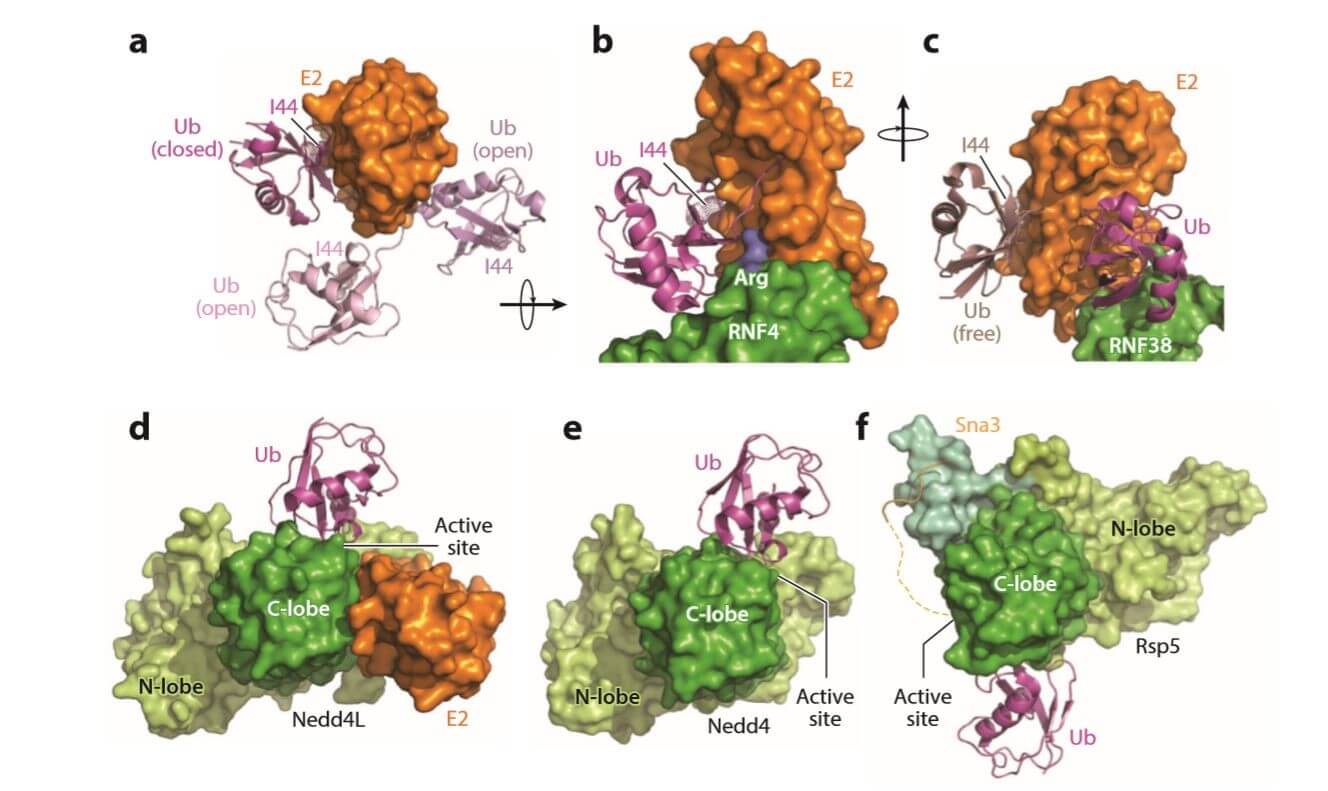As a professional technical service company in the field of Proteolysis Targeting Chimeric (PROTAC®) technology, BOC Sciences provides a number of research and development outsourcing services. E3 ubiquitin ligase is an important enzyme related to PROTAC technology. We provide technical services for E3 ubiquitin ligase activity assay, and pursue higher service efficiency and more competitive service costs on the premise of ensuring the quality of service, thereby helping customers shorten the research cycle and reduce research costs.
Introduction
E3 ubiquitin ligase is an enzyme that specifically binds to PROTAC, and is also one of the special enzymes that play a key role in ubiquitination. E3 ubiquitin ligase plays an important role in the specific recognition of target protein and the efficiency regulation of ubiquitination reaction. The human genome encodes more than 600 E3 ubiquitin ligases, but only a portion can be recruited to degrade the protein of interest (POI), such as von Hippel-Lindau (VHL), cereblon (CRBN), inhibitors of apoptosis (IAPs), and mouse double minute 2 homologue (MDM2). E3 ubiquitin ligase activity affects the ubiquitination process and thus the degradation of the target protein. Therefore, E3 ubiquitin ligase activity assay is of great significance in the research related to PROTAC technology. The detection of E3 ubiquitin ligase activity often utilizes its auto-ubiquitination ability, because auto-ubiquitination is a characteristic that exists in almost all E3 ubiquitin ligase.

Service for E3 Ubiquitin Ligase Activity Assay (include but not limited to the following):
- Tandem Ubiquitin Binding Entities (TUBEs)-based E3 Ubiquitin Ligase Activity Assay
Due to the nanomolar affinity between polyubiquitylated proteins with TUBEs, which are linear fusions of ubiquitin binding domains (UBAs), TUBEs can be used to detect E3 ubiquitin ligase activity. We have a set of advanced technology platforms based on TUBEs, which can be used to provide related technical services for the activity testing of E3 ubiquitin ligase. - Western Blot-based E3 Ubiquitin Ligase Activity Assay
E3 ubiquitin ligase has the ability to perform its auto-ubiquitination by modifying specific lysine residues in the ligase. This activity assay first utilizes the auto-ubiquitination ability of E3 ubiquitin ligase to promote the ubiquitination reaction, and then isolate the proteins, and use specific antibodies for protein analysis. The technologies involved include in vitro auto-ubiquitilylation, SDS-PAGE and western blot. Western blot -based activity assay belongs to the traditional technology used for E3 ubiquitin ligase activity testing. Our technical team has extensive experience and can guarantee to provide customers with reliable technical services.
Our Advantages
- A variety of E3 ubiquitin ligase activity test platforms, covering traditional and non-traditional technologies, to meet the needs of different customers
- Professional technical team helps to formulate suitable testing solutions
- Strict and standardized testing process and professional data analysis
- Highly reliable and reproducible results
- Short turn-around time and competitive price
Workflow of E3 Ubiquitin Ligase Activity Assay

References:
- Zheng, N.; Shabek, N. Ubiquitin ligases: structure, function, and regulation. Annual Review of Biochemistry. 2017, 86(1): 129-157.
- Sun, X.Y.; et al. Protacs: great opportunities for academia and industry. Signal Transduction and Targeted Therapy. 2019, 4: 64.
- Marblestone, J.G.; et al. Analysis of ubiquitin E3 ligase activity using selective polyubiquitin binding proteins. Biochimica Et Biophysica Acta, 2012, 1823(11): 2094-2097.
* PROTAC® is a registered trademark of Arvinas Operations, Inc., and is used under license.



